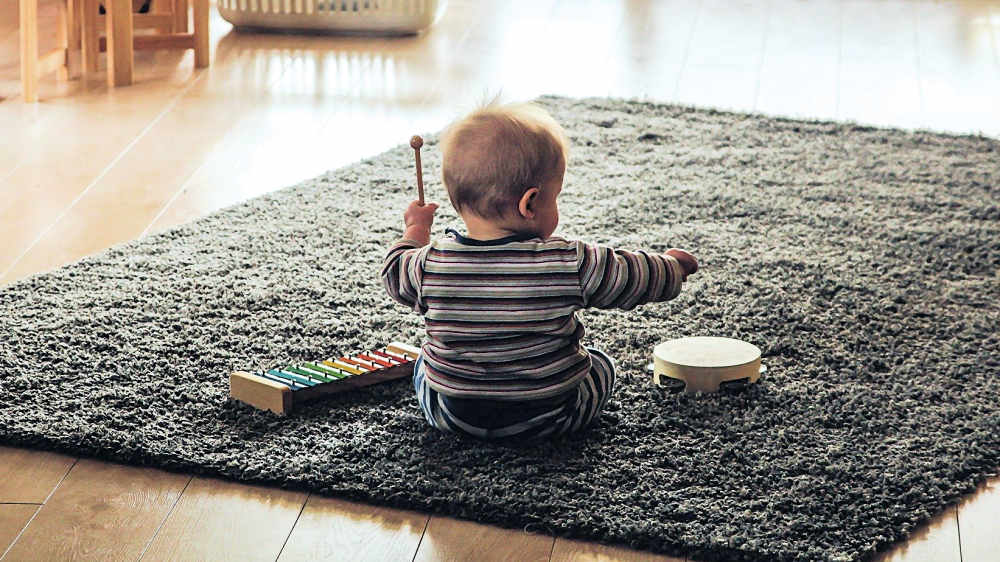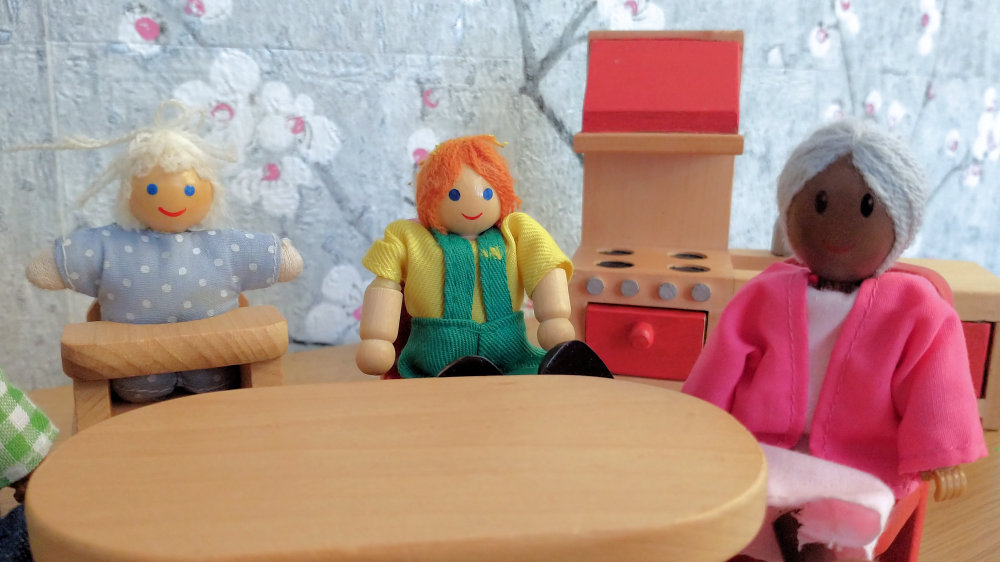


Attachment theory looks at how we form relationships with others. This is learned through our experience of our first relationship: the parent-child bond. This bond can influence how confident children are in exploring their environment, how they react to strangers, how they behave when stressed, and how their social skills develop.

When we have early childhood experiences of trauma, it can affect how we react to strangers, experience stress, and form relationships. If children experience multiple family placements due to being in the care system, they can have an under-developed sense of identity and low self-confidence.
Music Therapy combines music-making and talking therapy. Making music can be playful, lowering our anxiety and defences, and this allows us to be receptive to building a therapeutic relationship. Music also encourages creative self-expression and makes us more confident in expressing ourselves. Talking in therapy can help us put words to our feelings and analyse the subconscious process of making music, strengthening our cognition. Over time this process can help us better understand ourselves and our needs.
All specialist session packages start with an in-depth assessment process, including a Child Attachment and Play Assessment (CAPA), initial consultation meeting with families and professionals, up to 5 therapy sessions, and a detailed professional report. Following the assessment, further sessions can be arranged.
Contact us for a free, 20-minute consultation with the Music Therapy Manager and more information on how to book an assessment.
DDP is an attachment-focused family therapy for children who have experienced relational trauma, including abuse and neglect, in their birth families. DDP sessions include the parents and child together in the sessions, and sessions are 50–90 minutes long.
We offer DDP family therapy, online parenting reflection groups, advice, and support to families with children who are looked after or adopted. Our DDP sessions are run by an experienced music therapy and DDP-informed practitioner.

This play-based procedure assesses attachment and complex trauma for children aged 3-11. (A modified CAPA is also available for young people older than 11 years.)
The procedure involves the use of dolls (representing a family) and doll house props, where an interviewer gives the child the first part of a story and then asks for the child to finish it. These stories introduce a mild to moderate level of stress (such as loud noises in the night or children receiving mild injuries) in order to trigger attachment-based responses in the children’s storytelling. The procedure is video-recorded so it can be coded, focusing on observations of behaviour, the relationship with the interviewer, speech patterns, and possible trauma-markers.
A story stem assessment can be included as part of a therapeutic assessment and includes conducting the child’s interview, coding by a qualified assessor, and a detailed report.
Visit the-capa.com for more information.




If you sign up via this form, your data will be processed by Mailchimp and used solely for keeping you informed of Whole Step CIC’s activities. It will not be shared with anyone else.
You can cancel your subscription at any time, and the confirmation you receive when subscribing will include a link to enable you to do this quickly and simply.
Sign up to our mailing list to find out about our most recent music therapy projects, research, community news, and publications.
